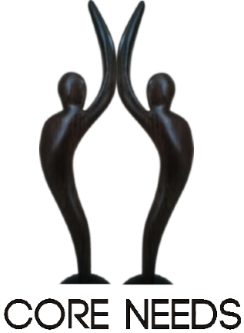POWER AND CONTROL … THE EVERYDAY BATTLE
If you were
to add up the minutes, hours and days spent frustrated and angry over the words
or actions of others, how much time and energy would you have wasted… so far?
How much of your power would you have given to other people … the power to
change your mood, your day, your self-belief?
The issues that tend to disturb us most, that keep us awake at night, most often stem from our interactions with others. Power and control are frequently the underlying themes. The blame and anger build, the emotions rise, the blood pressure joins in or the IBS kicks in. We replay the situation in our minds over and over again and repeat it to whoever will listen so the effects get multiplied, and most likely, in the not-too-distant future, something similar will occur again, and so the cycle repeats. Enough repeats and the stress levels and physical effects become chronic.
I gleaned one piece of information from a week-long course I undertook many years ago in what is called ‘Choice Theory, Reality Therapy’. In a nutshell it is that WE choose our responses to everything. We cannot control what happens, but no matter what, the reality is we get to choose how we respond. Likewise, nothing and no-one ‘makes’ us anything.
The key lesson I have learned is that in wanting anyone or anything else to change so we can be happier, we are leaving our happiness dependent on our ability to control other people and external situations.
Whether it’s a work colleague or line manager, a family member, someone on our sports teams or local committees, it really doesn’t matter. The effects and the outcomes are the same and the only common denominator in all these situations is you.
Everyone grows up with their own strengths and weaknesses, values and priorities, attitudes and beliefs, their default ways of being and their defensive mechanisms, most of which developed through childhood and conditioning as they navigated life in their early formative years … just as ours did.
These are never going to be in complete harmony with our own. This is why we are naturally drawn to some people and not to others.
But there are many situations in life and work where we can’t specify the personalities of the people we encounter. Inevitably, someone will trigger a reaction in us. It may be because we don’t like their attitude, we’re offended by something they said, or our perception of what they said, we may feel ‘it makes us look bad’. It may be because it challenges something in us, whether it grates against what we value as important, or whether it connects with a hidden fear or self-doubt we harbour.
Regardless of why it triggers us, the end result is our own internal defence mechanism kicks in … or ‘internal guidance system’ if you’ve mastered self-awareness! But by focusing on the other person and what they are saying or doing ‘wrong’ we are missing the point.
We might want the other person to change their way of being so we can be happier, but we have no control over that. What we have control over is our awareness and perspective of what’s happening and more importantly, our response to it. Some people quit the committee or leave the job or avoid meeting whoever it is. Sometimes this can be a wise move, other times it is just running away from the situation rather then addressing the internal issue … until confronted once again!
Do you need to be more assertive (not aggressive, not plotting revenge, not growing an army of supporters or engaging in power plays!)? Do you simply take away it’s power to control your emotions by taking away your attention from it? Is there a different perspective you can take … is there a possibility the other person is acting out of fear, insecurity or lack of interpersonal skills rather than any perceived issue or weakness on your behalf? On the other hand, maybe, there is some validity to what is being said and you could accept and learn from this? If none of these are going to work in your situation, do you make a choice regarding your situation?
There are as many ways to change your response as there are situations which occur. Your task is to bring a bit of self-awareness to the situation and see what way you choose to handle this, how you will honour your own values, beliefs and perspectives while minimising the emotional charge going towards judgement and resistance of the other’s perspective or way of being.
As Viktor Frankl, a prisoner in Nazi concentration camps during World War 11 commented, “When we are no longer able to change a situation, we are challenged to change ourselves.” “Everything can be taken from a man but one thing: the last of the human freedoms—to choose one’s attitude in any given set of circumstances, to choose one’s own way.”
When we realize that WE have the power to totally change those interactions, we realize we are in control and external situations or people no longer get to control our mood, our day, our state of being. The bonus is we grow in self-awareness and confidence in the process, so sometimes these challenges are the greatest lessons and tools for real empowerment.
Breda Stewart
Core Needs Coaching
You’re always making choices … even when standing still
Email: stewartbreda243@gmail.com
Phone: 087 7436254
Web: www.coreneeds.ie
